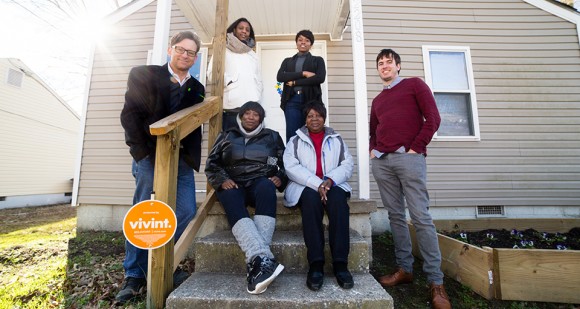Verna Torain has lived in east Greensboro’s Cottage Grove neighborhood for more than 25 years.
When she first moved to the community, many residents worked in nearby factories. “Now everything’s closed down,” says the volunteer and community activist. “There’s no jobs.”
The economic toll has left its mark on Cottage Grove. Houses and apartments have fallen into disrepair. And it’s not just buildings suffering.
Job loss and substandard housing are two factors contributing to a host of other issues, including health problems.
The connections among housing, sickness and related problems are the primary focus of Dr. Stephen Sills’ Center for Housing and Community Studies (CHCS) at UNCG.
Sills, an associate professor of sociology, is using statistical analysis and software to better understand these issues. He works closely with residents, plus nonprofit organizations, government agencies, foundations and health care providers, to design, test and implement solutions.
“I’m working on health one day; I’m working on educational outcomes on another,” he says. “I’m working on mortgage markets and fair housing. It looks like I’m all over the place, but what I’m doing is taking problems that come to me and applying the best research tool I have.”
Sills taps other faculty – such as Dr. Keith Debbage, who holds a joint appointment in the Department of Geography and the Bryan School of Business and Economics, and Dr. Ken Gruber at the UNCG Center for Youth, Family and Community Partnerships – to bring additional expertise to center projects.
With the support of a highly competitive Invest Health grant, Sills and his partners – both on campus and in the community – are currently examining the relationship between substandard housing and pediatric asthma in Greensboro.
More at: http://ure.uncg.edu/prod/cweekly/2017/06/13/crunching-date-mending-neighborhoods/
